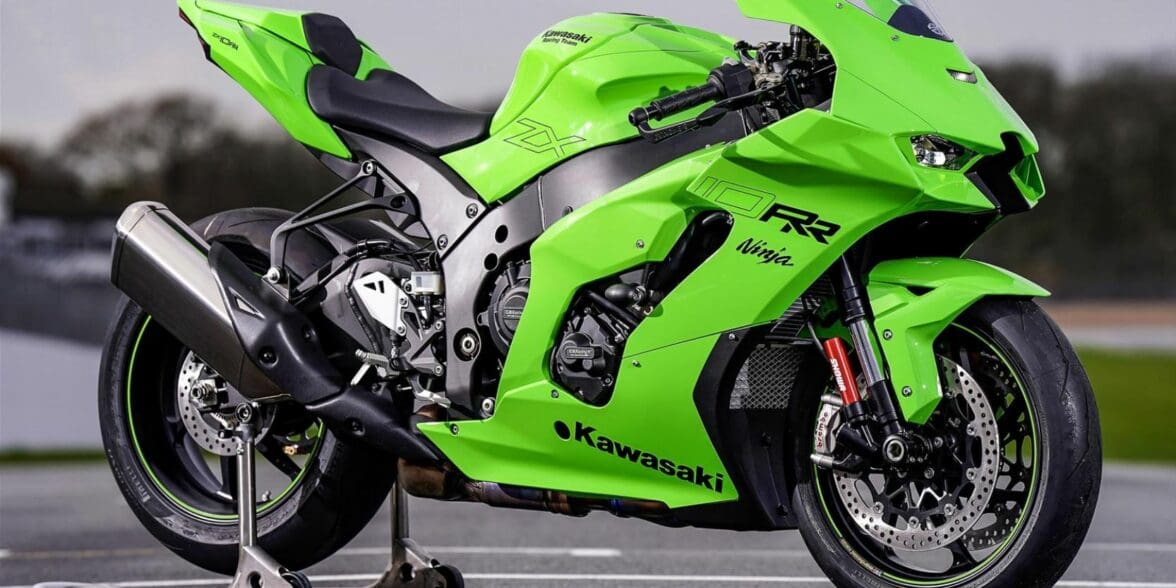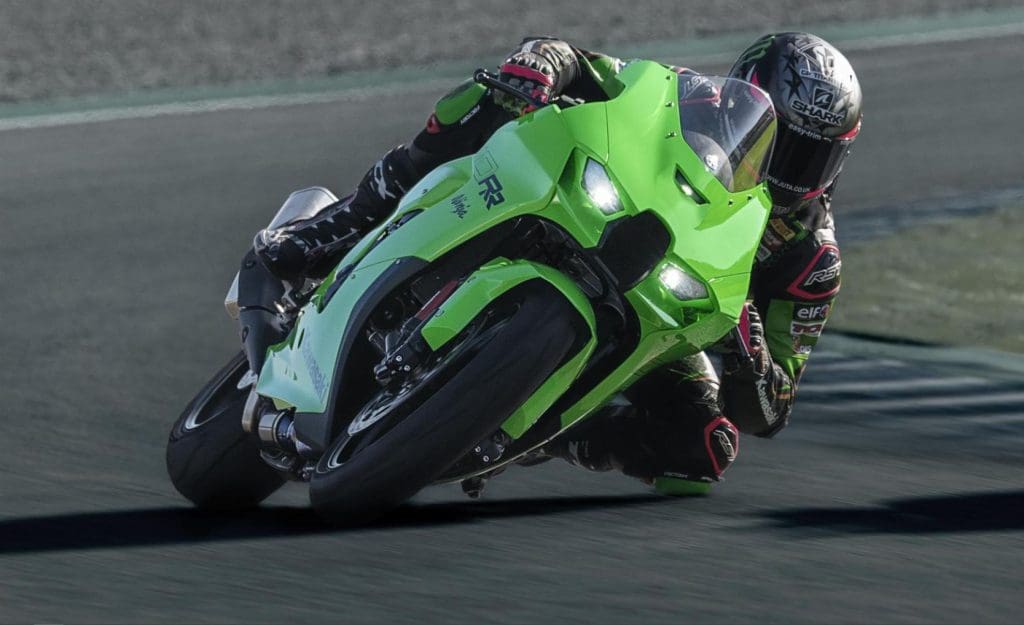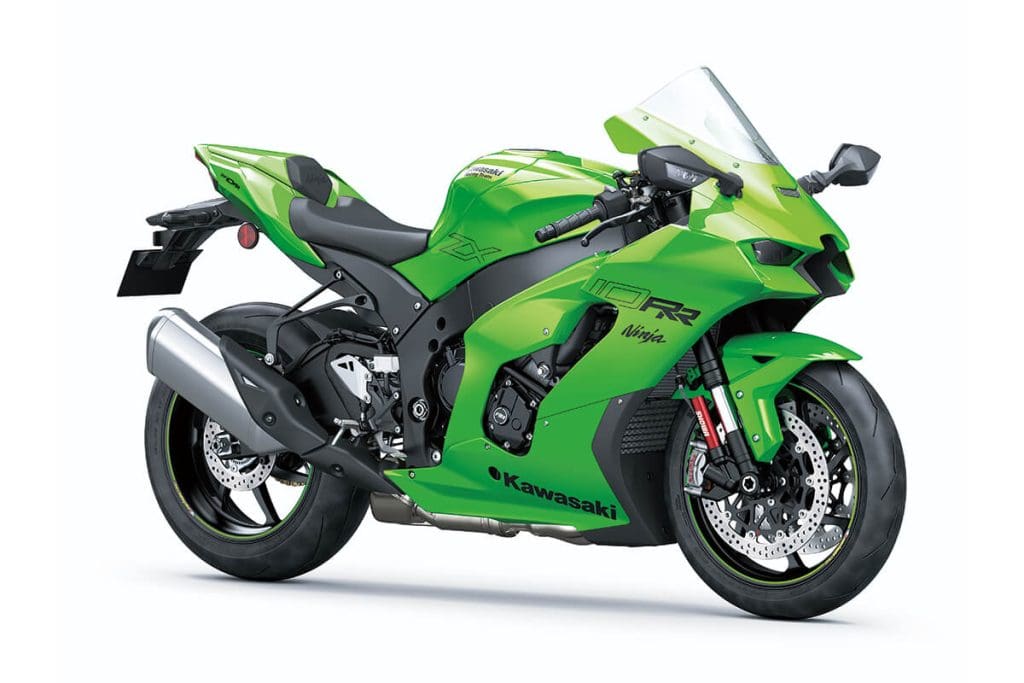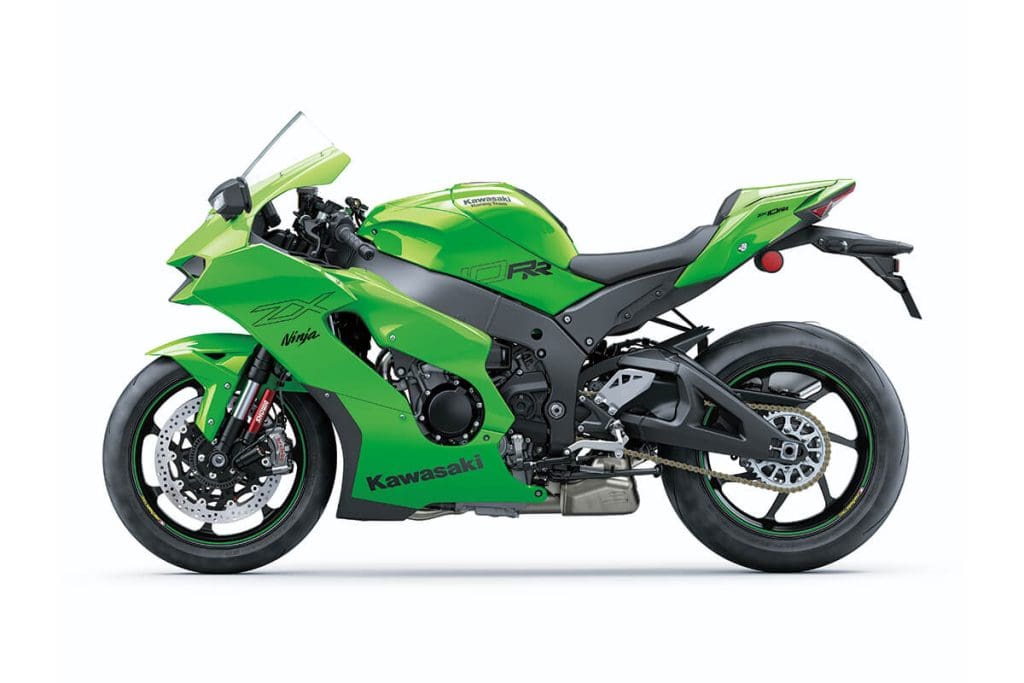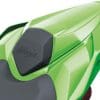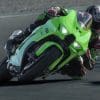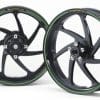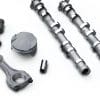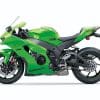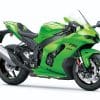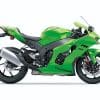The 2021 Kawasaki Ninja ZX-10RR: Ultra Exclusive Team Green
Contents
The 2021 Kawasaki Ninja ZX-10RR is all-new for 2021. This race-ready variant is Kawasaki Motorcycle’s entry into the ultra-exclusive Japanese-made literbike club. Fans of Team Green and Jonathan Rea can experience for themselves how it might feel to be in the saddle of the MotoGP champs bike, making laps of your local track.
Stepping it up from its sibling, Kawasaki has removed the intake funnels in the airbox, upgraded the pistons, and connecting rods with titanium units from Pankl. Improvements to the intake and exhaust valve springs, all add up to a more robust track platform with a 500 RPM bump on the top end rev limit, more visually obvious to where the additional expense comes in, the Marchesini Forged Wheels with Pirelli Diablo™ Supercorsa SP Tires.
The 998cc in-line 4, is Euro 5 compliant and still able to output 201hp (150 kW) and 85 lbs•ft (115.7 Nm) of torque. Loaded with the most advanced electronics package Kawasaki produces, navigating the setup is simplified with the new TFT dashboard.
Six consecutive years winning both riders’ and manufacturers’ titles in the Superbike World Championship, doesn’t happen by accident. For the 2021 Kawasaki lineup, 500 examples of the ZX-10RR are available. Those who secure one, absolutely have reason to swagger.
Color for 2021 include: Lime Green
The 2021 Kawasaki Ninja ZX-10RR starts at $28,999 USD. It is not available in Canada.
On this page: we’ve curated specs, features, news, photos/videos, etc. so you can read up on the new 2021 Kawasaki Ninja ZX-10RR in one place.
Model Overview
General Info
- Price: $28,999 USD / Not Available in Canada
- Key Features:
-
- Aerodynamic styling with integrated winglets
- Kawasaki Cornering Management Function (KCMF)
- Kawasaki Quick Shifter (KQS)
- Pankl Pistons & Titanium Connecting Rods
- Rideology the App Smartphone Connectivity
Main Specs
- Engine: 998cc, 4-stroke, In-Line Four, DOHC, 16-valve, liquid-cooled
- Power: 201 hp (150 kW) @ 14,000 RPM
- Torque: 84.7 lb-ft (114.9 Nm) @ 11,700 RPM
- Wet Weight: 207 kg (456 lb)
- Seat Height: 835 mm (32.9 in)
2021 Kawasaki Ninja ZX-10RR Specifications
ENGINE |
||
| Engine | 998cc, 4-stroke, In-Line Four, DOHC, 16-valve, liquid-cooled | |
| Power | 201 hp | |
| Bore x Stroke | 76.0 x 55.0mm | |
| Compression Ratio |
13.0:1
|
|
| Fuel System | DFI® w/47mm Mikuni throttle bodies (4) with oval sub-throttles, two injectors per cylinder | |
| Starter | Electric | |
| Lubrication | ||
DRIVETRAIN |
||
| Clutch | ||
| Transmission | 6-speed, return shift | |
| Final Drive | Sealed chain | |
CHASSIS |
||
| Suspension Front | 43mm inverted Balance Free Fork, adjustable stepless rebound and compression damping, spring preload adjustability/4.7 in | |
| Suspension Rear | Horizontal back-link with Balance Free gas-charged shock, stepless, dual-range (low-/high-speed) compression damping, stepless rebound damping, fully adjustable spring preload/4.5 in | |
| Brakes Front | Intelligent Braking (KIBS), Brembo dual semi-floating 330mm discs with dual radial mounted monobloc 4-piston calipers | |
| Brakes Rear |
KIBS-controlled, single 220mm disc with aluminum single-piston caliper
|
|
| Tires Front | 120/70 ZR17 | |
| Tires Rear | 190/55 ZR17 | |
| Fuel Tank Capacity | 4.5 gal | |
| Color |
Lime Green
|
|
ELECTRICAL |
||
| Ignition | TCBI with digital advance and Sport-Kawasaki Traction Control (S-KTRC) | |
| Spark Plugs | ||
| Headlight | LED | |
| Tail Light | LED | |
DIMENSIONS |
||
| Overall Length | 82.1 in | |
| Overall Width | 29.5 in | |
| Overall Height | 46.7 in | |
| Wheelbase | 57.1 in | |
| Ground Clearance | 5.3 in | |
| Seat Height | 32.9 in | |
| Curb Weight | 456.4 lb | |
WARRANTY |
||
| Warranty | 12 months | |
| Kawasaki Protection Plus | 12 / 24 / 36 / 48 months | |
2021 Kawasaki Ninja ZX-10RR Features
Economical Riding Indicator
While effective vehicle speed and engine speed may vary by model, paying attention to conditions that cause the “ECO” mark to appear can help riders improve their fuel efficiency – a handy way to increase cruising range. Further, keeping fuel consumption low also helps minimize negative impact on the environment.
Electronic Throttle Valves
Electronic throttle valves also enable more precise control of electronic engine management systems like S-KTRC and KTRC, and allow the implementation of electronic systems like KLCM, Kawasaki Engine Brake Control, and Electronic Cruise Control.
Kawasaki Engine Brake Control
KLCM (Kawasaki Launch Control Mode)
KCMF (Kawasaki Cornering Management Function)
• S-KTRC/KTRC (including traction management and wheel lift management)
• KLCM (including traction management and wheel lift management)
– Designed to optimize acceleration from a stop
• KIBS (including pitching management and corner braking management)
• Kawasaki Engine Brake Control
POWER MODES
S-KTRC (Sport-Kawasaki Traction Control)
S-KTRC monitors a number of parameters, including front and rear wheel speed (slip), engine rpm, throttle position and acceleration. Conditions are confirmed every five milliseconds, at which time the system looks at each of the parameters as well has how much they are changing (i.e. their rate of change). This unique Kawasaki method makes it possible to make interpolations and precisely calibrate engine output to suit traction conditions. By acting before slippage exceeds the limits of traction, drops in power can be minimized, resulting in ultra-smooth operation.
Because the sophisticated software bases its dynamic analysis on the chassis’ orientation relative to the track surface (rather than relative to a horizontal plane), it is able to take into account corner camber, gradient, etc., and adapt accordingly. It also automatically adjusts for tire wear, different tire profiles, high-grip tires, and numerous other factors that setting-type systems treat as fixed parameters. Models equipped with IMU incorporate chassis-orientation feedback to offer even more precise management.
KQS (KAWASAKI QUICK SHIFTER)
2021 Kawasaki Ninja ZX-10RR Photos
2021 Kawasaki Ninja ZX-10RR Videos
Links
Kawasaki Official Websites


